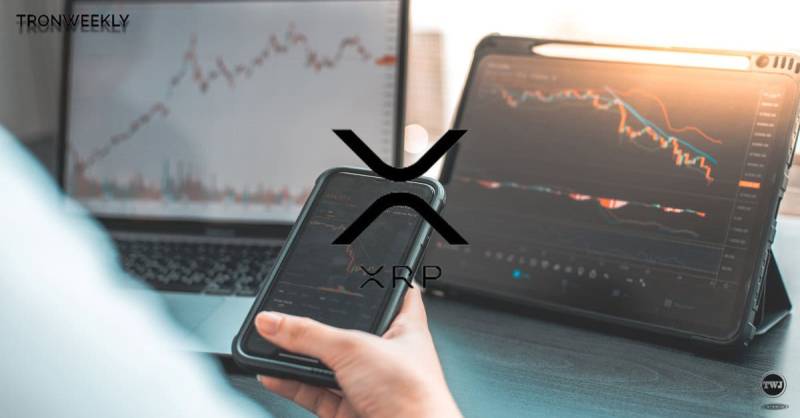 |
|
 |
|
 |
|
 |
|
 |
|
 |
|
 |
|
 |
|
 |
|
 |
|
 |
|
 |
|
 |
|
 |
|
 |
|
Cryptocurrency News Articles
The U.S. Securities and Exchange Commission (SEC) has taken a significant step in its regulatory scrutiny of blockchain gaming projects
Dec 25, 2024 at 01:58 am
The U.S. Securities and Exchange Commission (SEC) has taken a significant step in its regulatory scrutiny of blockchain gaming projects by issuing a Wells

The United States Securities and Exchange Commission (SEC) is reportedly preparing to sue NFT game platform CyberKongz over allegations that it failed to register its utility token, $BANANA, as a security, according to a recent post by CyberKongz on X (formerly Twitter).
This development comes amid growing tensions between blockchain innovators and federal regulators over the intersection of NFTs, utility tokens, and securities laws. Previously, the SEC has taken several enforcement actions against NFT projects, including Dapper Labs, which settled with the SEC over allegations that its Moments NFTs were unregistered securities.
CyberKongz, known for its pixelated NFT gorillas and unique tokenomics, began as a collection of 1000, 34×34 Genesis Kongz NFTs. Each Genesis Kong produces 10 $BANANA daily until March 18th, 2031, totaling 36,500,000 $BANANA over 10 years. Notably, the project introduced and popularized innovative NFT mechanics, such as breeding and Babies, which are integral to its ecosystem.
According to CyberKongz, the SEC’s Division of Enforcement approached the project with a concerning message: Register the ERC-20 token in your blockchain game together with the NFTs as a security.
A Wells notice is a formal notification indicating the SEC’s intention to consider enforcement actions based on its findings. Recipients typically have 30 days to respond to the notice, after which the SEC may decide to pursue formal charges. In this case, CyberKongz has warned that this action could have far-reaching implications for the blockchain gaming industry, particularly for projects that integrate NFTs with utility tokens.
CyberKongz began as a unique and randomly generate collection of 1000, 34×34 pixelated NFT gorillas now known as the Genesis Collection. CyberKongz were the first to introduce and popularize a number of innovative NFT mechanics, such as unique tokenomics for their utility token $BANANA, which led to breeding and Babies. Each Genesis Kong produces 10 $BANANA every day until March 18th 2031. The total $BANANA produced for entire collection over the 10 year contract is 36,500,000 $BANANA. Anyone who holds any two Genesis Kongz in their wallet and burn 600 $BANANA receives an incubator to breed a baby. Each baby is unique and owns randomized items with different rarities. The project features many other creative aspects as well.
According to its website: “CyberKongz is driven by community, utility, and of course the main life source of any ape, $BANANA! $BANANA is the utility token that fuels the CyberKongz ecosystem. It is NOT an investment and has NO economic value.”
Of course the SEC does not place much emphasis on disclaimers such as this. Rather, it focuses on the totality of the facts and circumstances and the economic realities of any tokens.
In its response to the SEC, CyberKongz signaled its intention to challenge the agency’s position and criticized the SEC for what it described as a “complete lack of understanding of blockchain technologies,” evidenced by “unjust accusations and information inaccuracies” in its engagement with the blockchain space. Furthermore, CyberKongz highlighted the significance of defending against the SEC’s stance for the benefit of the wider blockchain gaming ecosystem.
The CyberKongz Wells notice highlights the challenges faced by blockchain projects as they navigate the SEC’s evolving approach to enforcement. If the SEC's position is upheld, it could set a precedent where NFT gaming platforms that incorporate utility tokens must register those tokens as securities.
In related news, the Consumer Financial Protection Bureau published a report on Banking in Video Games and Virtual Worlds, warning of increased scrutiny and enforcement of financial services in games that mimic traditional banking and payment systems, while another federal regulator is keeping an eye on blockchain gaming. For more on the report, see our analysis here.
As the battle between CyberKongz and the SEC unfolds, the case is likely to draw significant attention from the blockchain community, regulators, and legal experts alike. For now, CyberKongz prepares to defend its project and principles in what could be a pivotal case for the blockchain gaming sector.
Blockchain gaming companies that have concerns about whether NFTs they have issued or plan to issue implicate securities laws should seek advice from a knowledgeable attorney, based on the specific facts of their offering. In some cases, certain actions can be taken to minimize the risk of an enforcement.
Disclaimer:info@kdj.com
The information provided is not trading advice. kdj.com does not assume any responsibility for any investments made based on the information provided in this article. Cryptocurrencies are highly volatile and it is highly recommended that you invest with caution after thorough research!
If you believe that the content used on this website infringes your copyright, please contact us immediately (info@kdj.com) and we will delete it promptly.
-

- XRP ETF Catalyst Emerges as CBOE Files Quadruple Applications; CEO Garlinghouse Stirs the Pot
- Feb 08, 2025 at 05:36 am
- The market is on edge. The Chicago Board Options Exchange (CBOE) has filed for four XRP ETFs. Big financial players, WisdomTree, Canary, Bitwise, and 21Shares, are behind these filings.
-

-

- CrytocoinMiner: A New Way to Mine Bitcoin
- Feb 08, 2025 at 05:36 am
- Recently, the cryptocurrency market has experienced a shocking event. A whale transferred 1,000 Bitcoins (BTC) from his account to CrytocoinMiner and started CrytocoinMiner’s cloud mining machine, which is expected to earn $38,000 in profits every day.
-

-

- Skyren DAO (SKYRN): The AI-Powered Crypto Investment Poised to Outperform Bitcoin
- Feb 08, 2025 at 05:36 am
- A new wave of crypto millionaires is emerging, and Skyren DAO (SKYRN) is at the center of it. AI-driven blockchain technology is reshaping the market, and SKYRN's explosive potential is turning early investors into future millionaires.
-

- Dogecoin (DOGE) Poised to Lead the Next Altcoin Season, Analysts Say, as Donald Trump's Truth.Fi Plans to Offer Doge and XRP in Made in America ETF
- Feb 08, 2025 at 05:36 am
- Both DOGE and Ripple's XRP have been navigating a volatile crypto market alongside Bitcoin, which continues to hover below the $100,000 threshold.
-

- Ripple and PlutoChain: Two Projects Trying to Solve Major Crypto Issues
- Feb 08, 2025 at 05:36 am
- Ripple's latest move bridges traditional finance with crypto, which could make XRP a go-to network for institutional investors looking for on-chain exposure to stable assets. Meanwhile, a new project is trying to tackle BTC's issues and upgrade its ecosystem – PlutoChain ($PLUTO). With instant transactions, lower fees, and Ethereum compatibility, it could finally bring Bitcoin the scalability it needs.
-

- Receipts Depositary Corp. Plans to Launch XRP-Backed Securities Targeting Institutional Investors
- Feb 08, 2025 at 05:36 am
- Receipts Depositary Corp. (RDC), a start-up founded by a group of former Citigroup executives, is planning to launch XRP-backed securities, according to people familiar with the matter.
-


























































